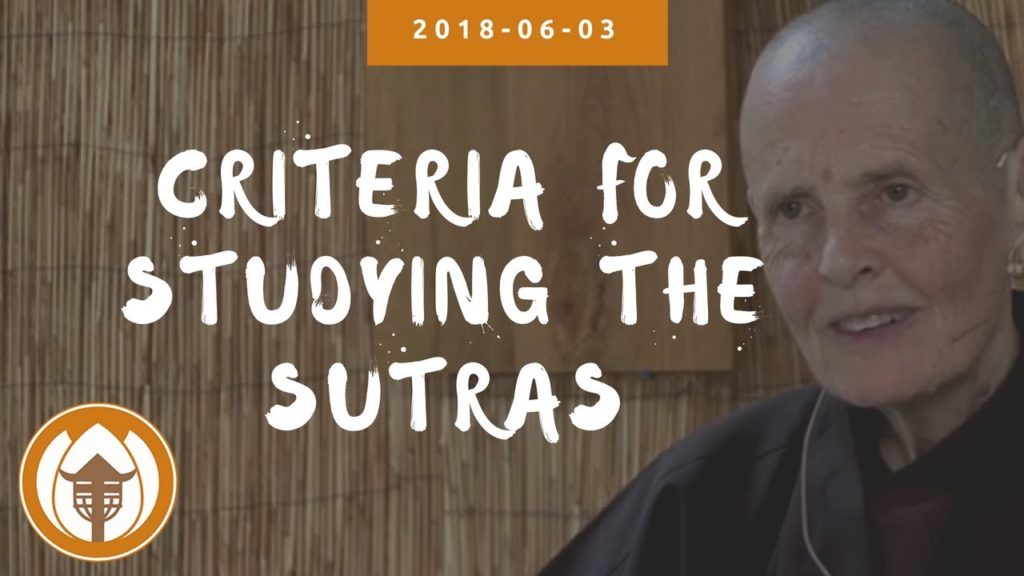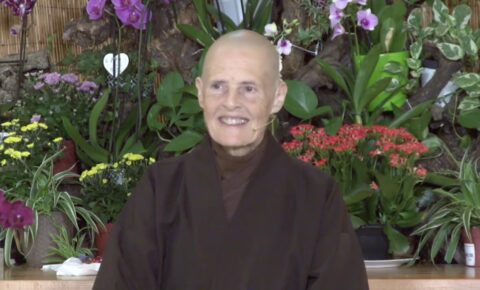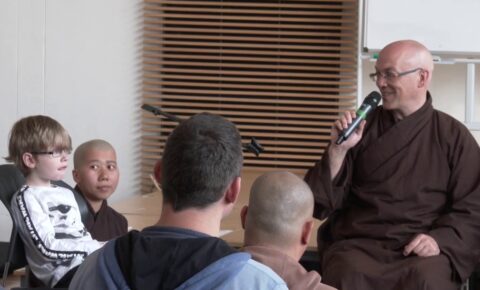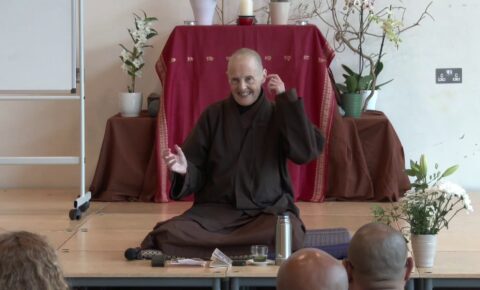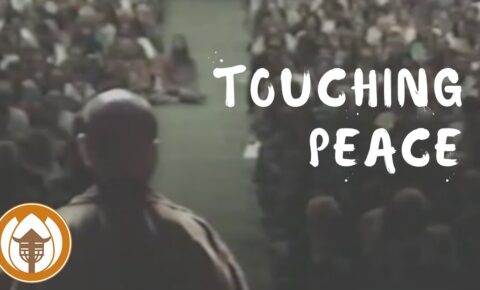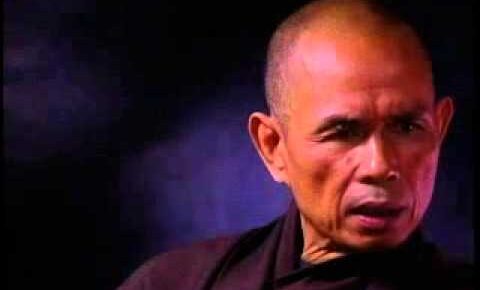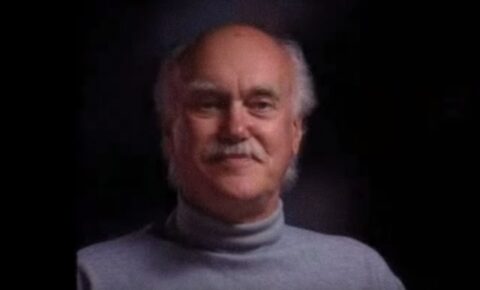Dharma talk during the 21- day retreat.
What does it mean to be a soul-mate of the Buddha? It means have I understood the Buddha and his teachings? Do I give enough time and space to understand? Understanding very much depends on our practice, and our correct practice also depends on our deep understanding of the teachings. The Buddha taught for 45 years after his enlightenment, and for about 400 years his teachings were transmitted orally by his disciples before they were written down in Sri Lanka. Our ancestors throughout the generations have written commentaries and passed down guidelines to help us understand the deep teachings. Sr Chân Đức presented some criteria to bear in mind when reading sutras. They are guidelines to help us to know what level of teachings we are reading, and how they can help us (16:00).
1. Worldly convention. Language is a convention that is necessary for daily life, but sometimes it can be an obstacle to understand concepts like time and space, “you” and “I”. When the Buddha taught, he needed to use language to help people, but as a listener we need to be careful and not get caught in such conventions. For example, in one sutra the Buddha said there is no-self, and in another he used the word self.
2. Person. In the sutra, who was the Buddha talking to? (25:00) The Buddha taught people from many different backgrounds and for each person he taught it according to how the person can receive it. For example, there were two ascetics, a dog ascetic and an ox ascetic, who asked the Buddha about rebirth in the god realm. The Buddha said don’t ask me that question, but they insisted, so he said if you practice as a dog everyday it is sure that you will be reborn as a dog. The Buddha doesn’t give such teachings about rebirth, but seeing how they suffered he needed to give them a strong warning. We should read the sutra being aware of who the teaching was meant for, and not take it as absolute truth and apply to all.
3. Healing. Teachings of the Buddha are medicine, not dogma nor doctrines to be held onto as absolute truth. His teachings are like a raft to be used when crossing a river, but not to be carried around afterwards like a burden. It is also like a poisonous snake that one should know how to catch without being bitten by it. For example, the 5 Remembrances should be practiced when one is in good health and strong in order to touch the truth of life. If one is sick and not strong, a more appropriate practice is to look at the conditions of happiness in the present moment.
4. Absolute Truth, or the highest meaning truth cannot be expressed in words, and they are not really in the sutras. However, the sutras are there like the finger that points to the moon. We can be careful not to be caught in words, but words can help us touch what goes beyond words. For example, “Interbeing” is a teaching of no-birth and no-death, but the word “being” is still needed.
Sr Chân Đức also taught in relation to the Four Reliances (52:30) as rough guidelines.
1. Dharma (not person). This means do not get caught on who (their character or personality) gave the teachings or the reminders, but we can be grateful for what was taught or reminded.
2. Deep teachings are what we need to uproot the suffering, but we need the practices that can build up our mindfulness and concentration so that insight can arise. Don’t misunderstand that we should only study deep teachings.
3. Spirit (not letter). If we study the sutra and follow the spirit of the teachings, then it can help us not to be fundamentalists.
4. Rely not on consciousness (our manas) to read sutras, but we should let go of ideas to allow the Dharma rain to penetrate deeply into our store consciousness. This will help us to see things in a different way – insight.
Conventional and sublime meaning truths are not separate from each other, they are not right and wrong, but conventional can help us to touch the sublime meaning truth.
To download the retreat booklet: https://plumvillage.org/news/booklet-of-the-21-day-retreat-a-real-soulmate-of-the-buddha/
This video has english subtitles.
You can help us caption and transcribe this video on Amara
